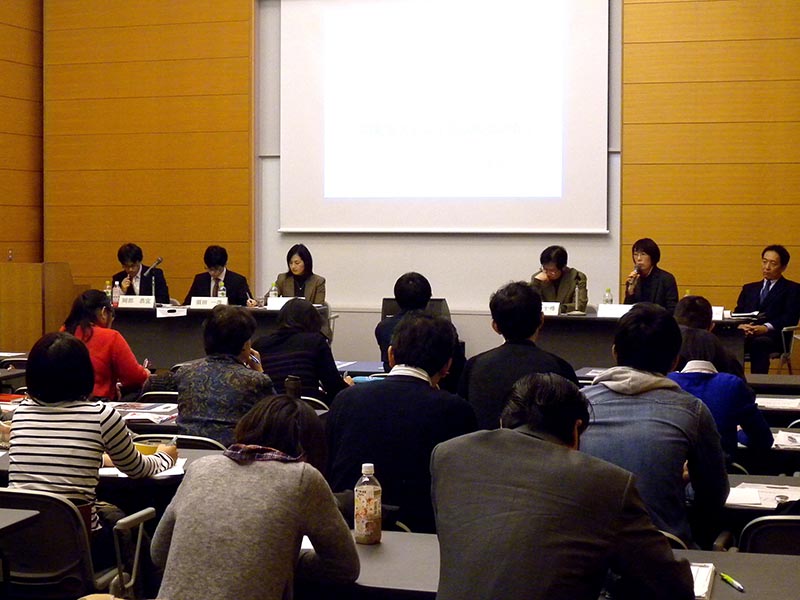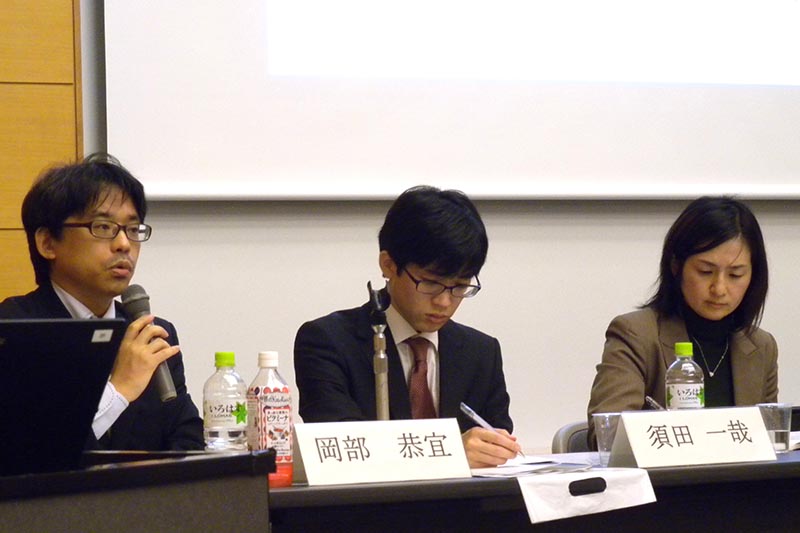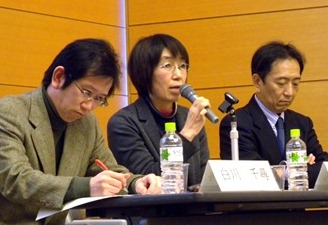Between Development Cooperation and Youth Development: JICA-RI Holds a Public Seminar on the JOCV Study in Kobe
2014.12.25
On December 13, 2014, the Fourth Seminar of Japan Overseas Cooperation Volunteers (JOCV) Study entitled "Between Development Cooperation and Youth Development" was held at JICA Kansai in Kobe.
JICA-RI has been conducting the Interdisciplinary Study of Japan Overseas Cooperation Volunteers (JOCV) research project since 2012. The project has been organizing a series of public seminar to disseminate its research outcomes. The seminar this time was the fourth, following on from the first on the themes of the history of the JOCV program, the second on the nexus between the JOCV program and anthropology, and the third on the international comparison of overseas volunteer programs. In this seminar, three research presentations were given with a focus on the JOCV's objectives, particularly the relationship between development cooperation and youth development.

At the session

Researchers from JICA-RI
Following the opening remarks by JICA-RI Director Ichiro Tambo, JICA-RI Senior Research Fellow Yasunobu Okabe presented his study on the history of JOCV's establishment and its development. He explained that there were several political factors to influence JOCV's genesis in 1965: the relations with the US under the Cold War, youth issues in rural and urban areas, the influence of leaders of youth associations and the young politicians of the Liberal Democratic Party (LDP), and the reaction of the Ministry of Foreign Affairs (MOFA). Further he pointed out that a tension and compromise between MOFA and LDP, and youth associations had made the JOCV program with multiple purposes, such as development assistance in developing countries, promotion of mutual understanding, and fostering of the international perspectives (youth development). He argued that this compromise, however, enabled JOCV to enjoy organizational support within the framework of JICA's technical cooperation and MOFA's diplomatic strategies and and also to obtain the support of local government and the JOCA's alumni association, to the extent that JOCV has been expanding for 50 years.
Subsequently, Associate Professor Chihiro Shirakawa, Graduate School of Human Sciences of Osaka University, made a presentation on "JOCV as Volunteers." Based on his own experiences as a JOCV, he analyzed the characteristics of volunteers for rural development that does not require high expertise in the JOCV program. In the presentation, he indicated that the rural development volunteers have strength in planning and implementing activities together with local people in the field without a preconceived idea, as they do not have a high level of expertise. He explained that this characteristic brings out the possibility of JOCV members to actively advance as "professionals with a voluntary perspective."

Panelists
Lastly, JICA-RI Research Fellow Sakiko Shiratori and Research Assistant Kazuya Suda presented the typologies of JOCVs. Based on the data of approximately 1,500 JOCVs continuously collected since 2011, they analyzed their reason for applying to JOCV with the methods called principal component analysis and cluster analysis. The result showed that the personality of JOCVs can be divided into six types, which are; "curious," "business-minded," "development assistance," "quest for oneself," "change-oriented," and "altruism." They suggested that this classification can be applied for various practices such as the use of JOCV as global human resources, recruitment for JOCV, and the planning of effective activities.
In response to these presentations, one of the panelists, Professor Michiyo Hashiguchi, Graduate School of Advanced Integrated Studies in Human Survivability (Shishu-Kan), Kyoto University, commented that one of the challenges that the JOCV program faces is keeping a balance among global human resources development, the characteristics as volunteers, and the expertise necessary for technical assistance. In addition, Executive Advisor to the Director General Hiroto Mitsugi, Secretariat of JICA's Japan Overseas Cooperation Volunteers mentioned that the theme of the seminar, "the relationship between development cooperation and youth development," has been a long discussed issue and the outstanding characteristics of the JOCV programs. The floor actively participated in the following question and answer session.

事業事前評価表(地球規模課題対応国際科学技術協力(SATREPS)).国際協力機構 地球環境部 . 防災第一チーム. 1.案件名.国 名: フィリピン共和国.

事業事前評価表(地球規模課題対応国際科学技術協力(SATREPS)).国際協力機構 地球環境部 . 防災第一チーム. 1.案件名.国 名: フィリピン共和国.

事業事前評価表(地球規模課題対応国際科学技術協力(SATREPS)).国際協力機構 地球環境部 . 防災第一チーム. 1.案件名.国 名: フィリピン共和国.

事業事前評価表(地球規模課題対応国際科学技術協力(SATREPS)).国際協力機構 地球環境部 . 防災第一チーム. 1.案件名.国 名: フィリピン共和国.

事業事前評価表(地球規模課題対応国際科学技術協力(SATREPS)).国際協力機構 地球環境部 . 防災第一チーム. 1.案件名.国 名: フィリピン共和国.
scroll